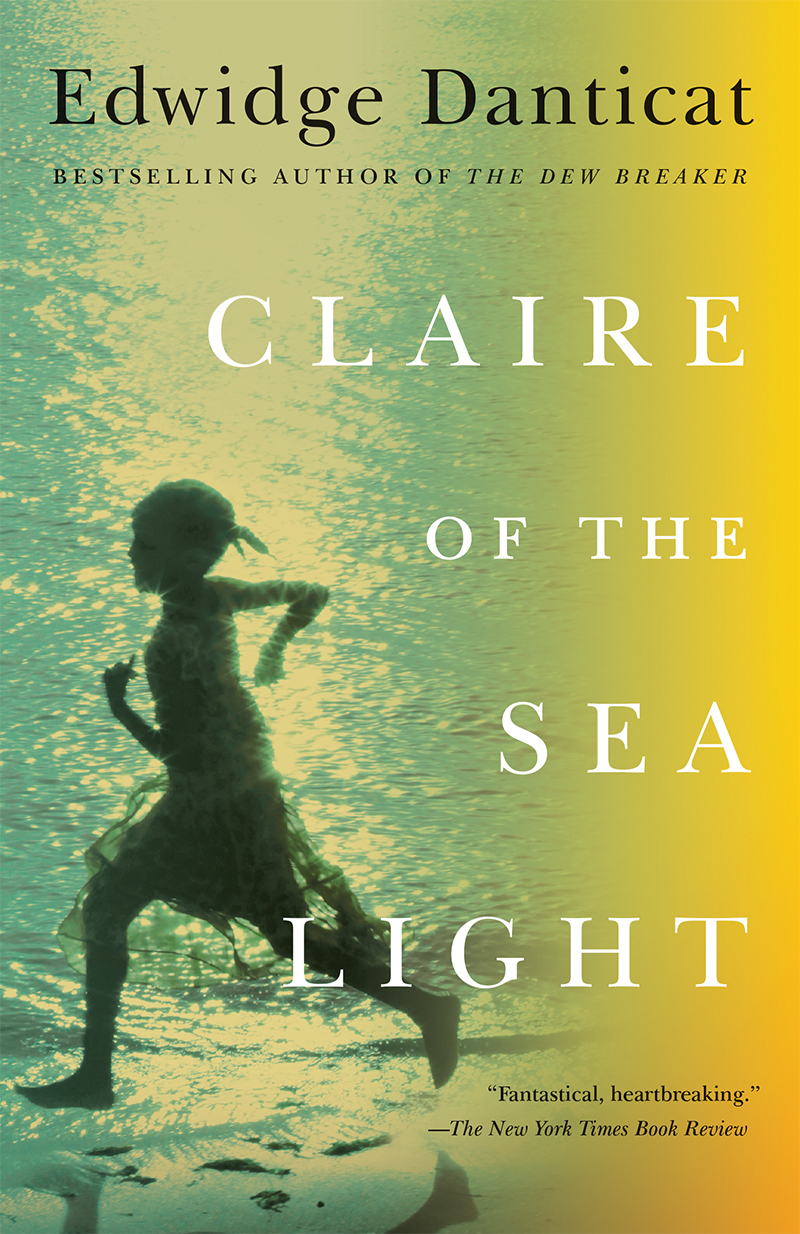A NEW YORK TIMES BOOK REVIEW AND WASHINGTON POST NOTABLE BOOK OF THE YEAR
AN NPR “GREAT READ
A CHRISTIAN SCIENCE MONITOR BEST FICTION BOOK,
A LIBRARY JOURNAL “TOP BOOK”
Just as her father makes the wrenching decision to send her away for a chance at a better life, Claire Limyè Lanmè—Claire of the Sea Light—suddenly disappears. As the people of the Haitian seaside community of Ville Rose search for her, painful secrets, haunting memories, and startling truths are unearthed. In this stunning novel about intertwined lives, Edwidge Danticat crafts a tightly woven, breathtaking tapestry that explores the mysterious bonds we share—with the natural world and with one another.
ORDER NOW
Reviews
"Danticat weaves a beautifully rendered portrait of longing in the small fishing town of Ville Rose in Haiti…Their stories and their lives flow beautifully one into another, all rendered in the luminous prose for which Danticat is known. —Vanessa Bush, Booklist
“Fiercely beautiful. . . . Brims with enchantments and surprises.” — Los Angeles Times
“Danticat’s determination to face both light and dark brings the story to life. But her skill as a writer makes the balancing act a pure pleasure to read. . . . [She] is a beautiful storyteller.” — The Miami Herald
“Danticat has created a pulsing world. . . . On these pages, the human heart is laid open and the secret contents of its chambers revealed in all their beauty and agony. . . . Haunting.” — O, The Oprah Magazine
“Hypnotic. . . . Danticat creates rich and varied interior lives for her characters. . . . Heartbreaking.” — The New York Times Book Review
“A revealing portrait that mixes a touch of magic with the tough reality of life in Haiti.” —NPR
“Writing with lyrical economy and precision, Ms. Danticat recounts her characters’ stories in crystalline prose that underscores the parallels in their lives.” —The New York Times
“Vivid and intensely personal. . . . Danticat has been fixing and unfixing her native country since the appearance of her first book. . . . She is a writer inhabited, a writer dedicated to opening her reader’s eyes to something she keeps trying to see for herself.” — San Francisco Chronicle
“The biggest questions of life flow from the pen of this brilliant novelist. In Claire of the Sea Light, Danticat folds the story into a package so preciously tight that we can tuck it in our hearts and keep it close and warm.” —Nikki Giovanni“
(Claire of the Sea Light) has the feel of a fairy tale. But its ethereal qualities are offset by its stark portrayal of life in small-town Haiti; the combination makes for a lovely book.” — New York magazine
“Danticat’s language is unadorned, but she uses it to forge intricate connections. . . . The dexterity of her sympathy is an even match for her unflinching vision.” —The Boston Globe
“A remarkably well-plotted combination of mystery and social critique.” —The Miami Herald
“The stories of the inhabitants of Ville Rose fold into one another in surprising ways; social barriers exist but are constantly transgressed—sometimes violently, sometimes with compassion and mutual understanding.” —Kaiama L. Glover, Public Books
“[An] extraordinary talent in full flower . . . . There’s a Faulknerian quality to Claire of the Sea Light . . . showing how human stories and lives ramify through and across each other in ways both touching and tragic.” —The Huffington Post
“Haunted by ghosts and grief, lifted by magic and love. . . . Danticat paints each of her characters and their town with vivid detail and lyrical language. . . . [Claire of the Sea Light] is lit with its own inextinguishable glow.” —Tampa Bay Times
“It’s the core human struggles that make it impossible to put the novel down. . . . [Danticat] brilliantly sheds light on an array of human issues with sexuality, identity, politics, class. . . . A heartfelt journey.” —New York Daily News
“Beautiful. . . . As usual, Danticat’s sentences are sedate, graceful and unpretentious.” —The Dallas Morning News “Masterful. . . . With Claire of the Sea Light, Danticat stuns us again.” —Harvard Review




